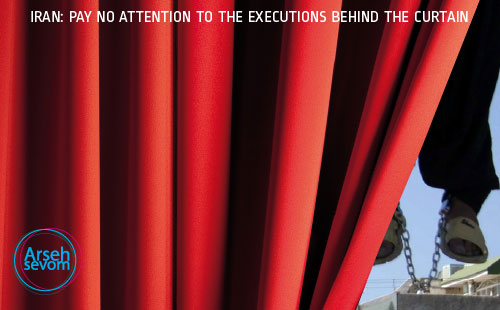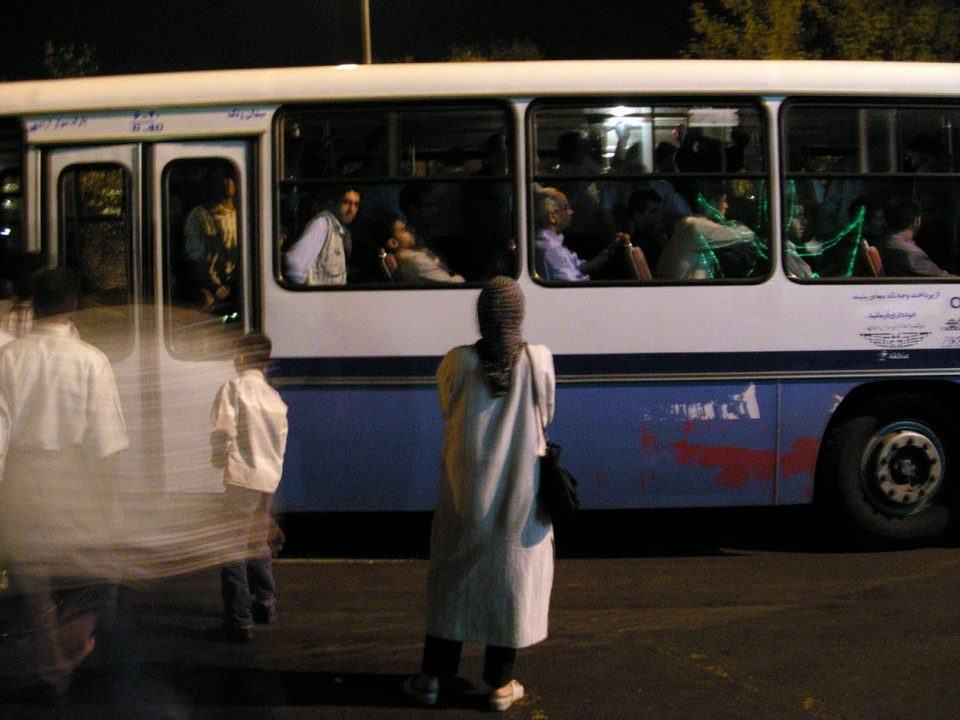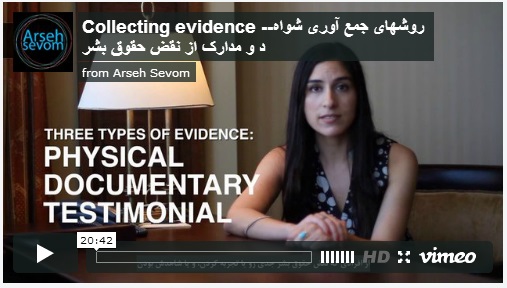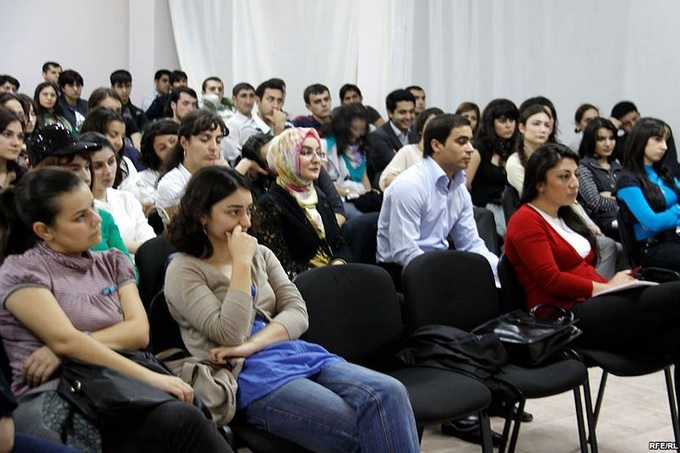Arseh Sevom — In this week’s overview, we learn that the short term political aims of sanctions have long term effects on the most vulnerable. Improved relations may actually lead to some ease in US sanctions. This would most likely only sanctions that are the result of executive orders. Sanctions signed into law by the US congress are unlikely to be changed. Over 100 tons of illegal drugs were seized in Tehran. We are not talking about recreational drugs here, many of them were difficult to find treatments. In a carnival-like atmosphere, the Iranian military destroyed equipment for over 800 satellite connections with tanks and bulldozers. Despite the kinder, gentler face Iran is showing the world, executions continue at a record rate and Internet freedom is at an all-time low. Will the Iranian government start thawing relations with its own population next?
by Peyman Majidzadeh
Hopes for Sanction Lift
Many articles have focused on positive and negative impacts of sanctions against Iran over the last few years. Recently, prominent economist Hashem Pesaran, who is predicted to be under consideration for Nobel Prize in Economics, published an article [en] on the topic. In the article he explains that sanctions are only effective in the short-term and, in the case of Iran, they have the most negative effects on low-income groups. As a result, the daily lives of Iranians are involved with politics and the negative effects of sanctions, to the extent which, according to a UN survey [en], they are more preoccupied with politics than populations of other countries.
However, there are hopes of lifting some sanctions after Rouhani took the office and moved towards trust building measures in the international arena. Although some countries such as Canada request continuous severe sanctions, others are acting more positively. Here is a short review:
- World Bank removed Iran from the list of non-payers
- US Senate delayed discussion on new sanctions on Iran
- Expected news (!): Under Secretary of State for Political Affairs Wendy Sherman said that core Iran sanctions should stay for now
- The most important one: in the first interview of a current US high-ranked official with an Iranian newspaper, State Department Persian language spokesperson Alan Eyre told Shargh Daily [fa] that the US is willing to lift sanctions on Iran
Not bad, huh?!
Foreign Policy Shift
The new Iranian government has begun its term with the promise of improving international relations. And here they go! According to reports [en], Hassan Rouhani met with the head of the International Monetary Fund (IMF), Christine Lagarde. The meeting, which took place on the sidelines of UN General Assembly in New York, was held at the request of Iranian authorities. The two figures discussed global economic developments, the Iranian government’s economic priorities, and how the partnership with the IMF might be deepened.
In similar news, PressTV [en] reported that Iran’s Foreign Minister Mohammad Javad Zarif met with UN High Commissioner for Human Rights, Navi Pillay in New York. Zarif emphasized potential cooperation between Iran and the Office of the UN High Commissioner on Human Rights and also invited Pillay to pay a visit to Iran in the near future. Let’s see how this visit will come along.
Iran has shifted its foreign policy to be more accommodating towards the international community. Iran is even ready to welcome tourists with open arms now.
Illegal Drugs Seized in Tehran
Many in Iran have been struggling with shortages and high prices of medication in recent years. The situation stems from a variety of reasons including, but not limited to, international sanctions and Iran’s inappropriate monetary and distribution policies.
According to Mehr News [fa], more than 100 tons of illegal drugs were seized in Tehran. The short report states that the illegal cargo was brought to the country via its western borders. A significant amount of drugs are those needed by Iranians who have been deprived of necessary medicine.
Don’t You Give Up? We Use Our Tanks!
The satellite dish battle has been on the table in Iran for years now. The Iranian regime has tried to collect and seize satellite dishes with various intensity at any given time. Free flow of information is still a dream in Iran. Internet websites are filtered, authors face closed doors to publish their works, and satellite equipment is illegal, for starters. However, the regime’s most recent operation took the battle to yet another level! They collected equipment for 800 satellite connections and crushed them in the streets using tanks and bulldozers. These photos document the event.
Iran-US: Direct Flight to Old Days
Iran and the US abandoned diplomatic relations almost three decades ago. Now, after the Rouhani-Obama phone call, there are reports of Iran discussing the possibility of restoring direct flights between Iran and the US. According to The Guardian [en], Rouhani has appointed a top presidential aide, Akbar Torkan, to investigate the issue. Torkan stated:
He [Rouhani] has ordered studying the start of direct flights between Iran and the United States in order to obviate the problems facing the Iranian expatriates’ visits.
Deutsche Welle [fa] also reported on an exchange of students and professors between Iran and the US as one of the plans of the new Iranian government. Iran-US love-hate relations have had their ups and downs, read a brief overview of them here.
Twiplomacy
After Rouhani, Zarif and other high-ranked officials in Iran created accounts on Twitter and Facebook, social networks and internet freedom have been more discussed. The impact of social networks is so high that some observers coined the word “Twiplomacy.” Some days ago, Twitter creator Jack Dorsey mentioned Rouhani in his tweet and actually got a response:
Evening, @Jack. As I told @camanpour, my efforts geared 2 ensure my ppl’ll comfortably b able 2 access all info globally as is their #right.
— Hassan Rouhani (@HassanRouhani) October 1, 2013
However, the goal seems beyond reach at the moment. In the 2013 net freedom report from Freedom House [pdf], looking at Internet freedom in 60 countries, Iran stands dead last. You’ve got your work cut out for you Mr. President!
Those Who Survived, Those Who Didn’t
After Nasrin Sotudeh and a number of other prisoners were freed, there were rumors about freedom for some other activists. According to REF/RL [en], the prominent reform journalist Issa Saharkhiz was freed from jail on October 3. Ironically, Saharkhiz was freed only two months before the end of his prison term.
However, there is a dark side to Rouhani’s term too. On October 3 Arseh Sevom [fa] reported on 129 executions in Rouhani’s term, 42% of which were secret executions. It is not a good profile for the new government and needs to be taken more seriously.
The Iran Human Rights Documentation Center and the International Campaign for Human Rights in Iran have issued a statement asking for a moratorium on executions. Hadi Ghaemi, executive director of the International Campaign for Human Rights in Iran states:
“While Rouhani was promoting a softer image of Iran internationally during his visit to New York two weeks ago, it was business as usual on the domestic front with scores of prisoners put to death following unfair trials…Since Rouhani’s inauguration, the increasing number of prisoners being sent to the gallows is indefensible.”
Farhadi Goes for Oscar Again
According to ISNA [fa], Iran selected the movie “The Past,” directed by Asghar Farhadi, to represent the country in the 85th Academy Awards. This will mark the second time Farhadi has been nominated for an Oscar. His first time up he won the prize. Those who believe the Oscar is a political award may have good reason to believe he will win for a second time.








